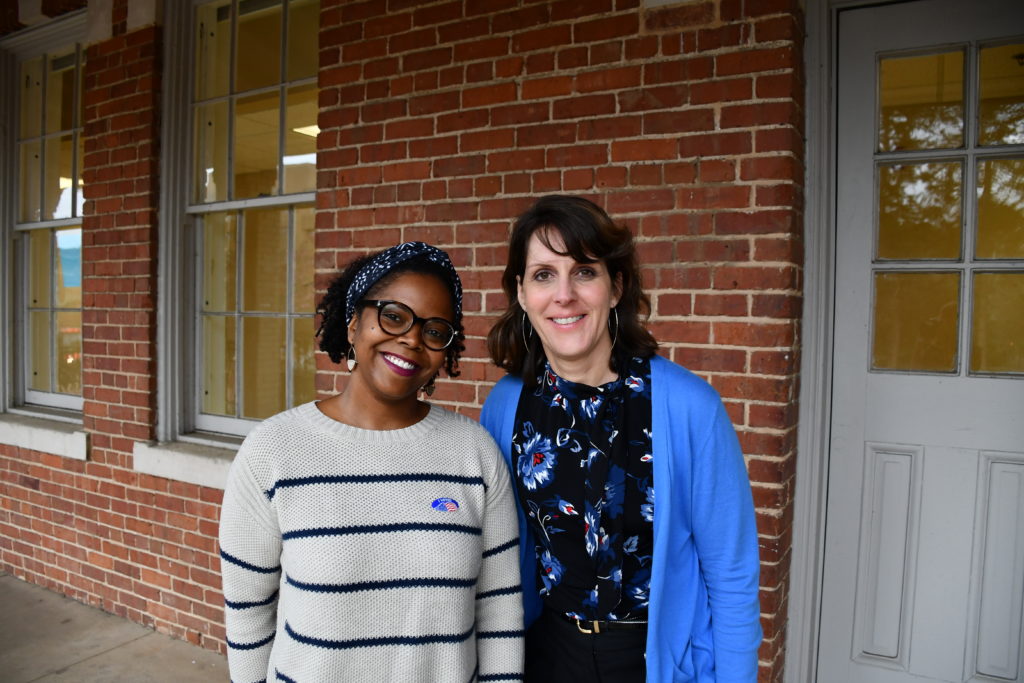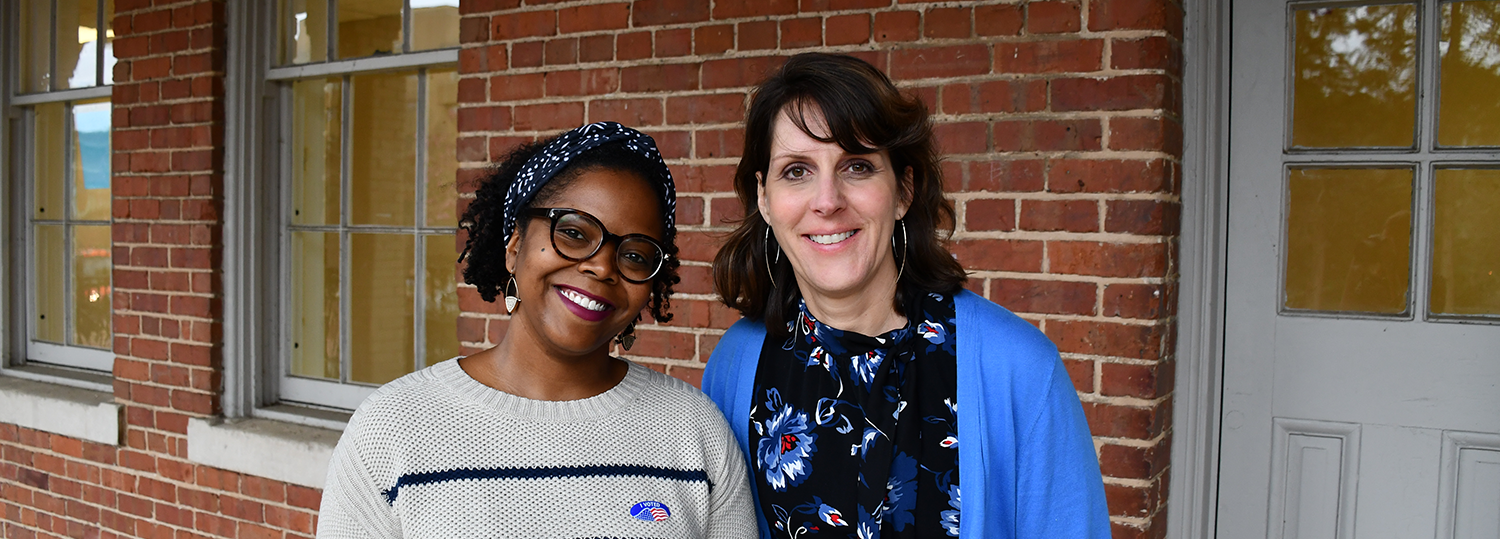In 2019, the Office of Outreach and Engagement awarded seven incentive grants to connect NC State faculty to applied scholarship opportunities in communities. The Outreach and Engagement Incentive Grants Program serves to address significant community challenges by aligning interdisciplinary faculty, their expertise, their students, and their research. Here, we profile one of the 2019 Incentive Grant Awardees.

In 2017, Dr. Angela Wiseman was working at a rehabilitation center for parents going through substance abuse recovery. Dr. Qiana Cryer-Coupet was working at the same center, researching parenting practices during recovery. They didn’t know each other or about each other’s work until a mutual colleague made the connection. The researchers met in person and their partnership was decided: Dr. Wiseman’s education background was a great complement to Dr. Cryer-Coupet’s social work background and thus, Trauma Informed Parenting Support for Recovery (TIPS 4 Recovery) was born.
Drs. Cryer-Coupet and Wiseman started TIPS 4 Recovery, a program for fathers to learn how to parent or co-parent their kids while going through recovery, because of their passion for youth and family engagement. The sessions typically start with Dr. Wiseman reading a children’s picture book aloud with the fathers. The group then discusses how they’d use the lesson in the real world. Dr. Cryer-Coupet follows the discussion with an emotional assessment with the fathers and ends with an activity, such as journaling.
The book “Ira Sleeps Over,” by Bernard Waber resonates extremely well with the fathers. It tells the story of a young boy who can’t decide whether or not to bring his teddy bear to a sleepover. Dr. Cryer-Coupet shared that many of the fathers opened up about their own “security blankets,” like a family photo, that helps them get through hard times.
The men share that they have benefitted from the training they get through TIPS 4 Recovery. “You get more training to drive a car than to be a parent,” one father shared. Some of the fathers actually started their own support group, and it has really helped the fathers with their vulnerability.
As far as professional development goes, Drs. Cryer-Coupet and Wiseman found that recently graduated social workers and teachers aren’t prepared to discuss family trauma. This was one of the first ideas that came from the grant, and they used their model from TIPS 4 Recovery to educate the preservice students. They brought in graphic novels to help the students learn how to teach others about a wide range of trauma by using picture books. Some of their favorites are “New Kid” by Jerry Craft and “American Born Chinese” by Gene Luen Yang. They just finished their last session out of six, with an average of 21 students per session.
Additionally, a webinar was created for in-service teachers and social workers to share how the TIPS 4 Recovery model could work for them. “We combined our expertise and created a good model for other people to use,” Dr. Wiseman said.
However, their work isn’t done just yet.
“We were actually just awarded the Non-Laboratory Scholarship and Research Support grant, where we’re going to do a national survey of teachers and social workers,” Dr. Cryer-Coupet added. They want to learn more about the teachers and social workers’ past with trauma and potentially conduct some focus groups. Receiving the grant was “great validation from the university” and “really highlighted the think and do mission,” Dr. Cryer-Coupet shared.
